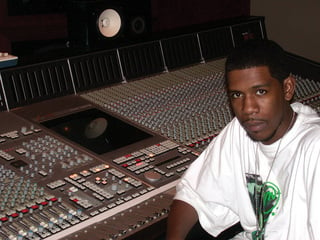She still want the God in her, think she Mary Mary
The prettiest bitches just want to service me Joe Budden – Black Cloud
What is this?
The Genius annotation is the work of the Genius Editorial project. Our editors and contributors collaborate to create the most interesting and informative explanation of any line of text. It’s also a work in progress, so leave a suggestion if this or any annotation is missing something.
To learn more about participating in the Genius Editorial project, check out the contributor guidelines.
What is this?
The Genius annotation is the work of the Genius Editorial project. Our editors and contributors collaborate to create the most interesting and informative explanation of any line of text. It’s also a work in progress, so leave a suggestion if this or any annotation is missing something.
To learn more about participating in the Genius Editorial project, check out the contributor guidelines.
What is this?
The Genius annotation is the work of the Genius Editorial project. Our editors and contributors collaborate to create the most interesting and informative explanation of any line of text. It’s also a work in progress, so leave a suggestion if this or any annotation is missing something.
To learn more about participating in the Genius Editorial project, check out the contributor guidelines.
What is this?
The Genius annotation is the work of the Genius Editorial project. Our editors and contributors collaborate to create the most interesting and informative explanation of any line of text. It’s also a work in progress, so leave a suggestion if this or any annotation is missing something.
To learn more about participating in the Genius Editorial project, check out the contributor guidelines.
Ayy, ayy, Hop—you ain't—you ain't have no, uh—
You ain't have no muh'fucking seat on your b—on your bicycle
Now, you, uh, the head of black music
That's what I'm talking 'bout right there, homie JAY-Z – My 1st Song
What is this?
The Genius annotation is the work of the Genius Editorial project. Our editors and contributors collaborate to create the most interesting and informative explanation of any line of text. It’s also a work in progress, so leave a suggestion if this or any annotation is missing something.
To learn more about participating in the Genius Editorial project, check out the contributor guidelines.
What is this?
The Genius annotation is the work of the Genius Editorial project. Our editors and contributors collaborate to create the most interesting and informative explanation of any line of text. It’s also a work in progress, so leave a suggestion if this or any annotation is missing something.
To learn more about participating in the Genius Editorial project, check out the contributor guidelines.
And I have seen the eternal Footman hold my coat, and snicker,
And in short, I was afraid. T.S. Eliot – The Love Song of J. Alfred Prufrock
What is this?
The Genius annotation is the work of the Genius Editorial project. Our editors and contributors collaborate to create the most interesting and informative explanation of any line of text. It’s also a work in progress, so leave a suggestion if this or any annotation is missing something.
To learn more about participating in the Genius Editorial project, check out the contributor guidelines.
By sea-girls wreathed with seaweed red and brown T.S. Eliot – The Love Song of J. Alfred Prufrock
What is this?
The Genius annotation is the work of the Genius Editorial project. Our editors and contributors collaborate to create the most interesting and informative explanation of any line of text. It’s also a work in progress, so leave a suggestion if this or any annotation is missing something.
To learn more about participating in the Genius Editorial project, check out the contributor guidelines.
Almost, at times, the Fool. T.S. Eliot – The Love Song of J. Alfred Prufrock
What is this?
The Genius annotation is the work of the Genius Editorial project. Our editors and contributors collaborate to create the most interesting and informative explanation of any line of text. It’s also a work in progress, so leave a suggestion if this or any annotation is missing something.
To learn more about participating in the Genius Editorial project, check out the contributor guidelines.










What is this?
The Genius annotation is the work of the Genius Editorial project. Our editors and contributors collaborate to create the most interesting and informative explanation of any line of text. It’s also a work in progress, so leave a suggestion if this or any annotation is missing something.
To learn more about participating in the Genius Editorial project, check out the contributor guidelines.
At first glance we have a literal meaning–on a farm, wheelbarrows are very important. Sure. We can all agree there. But what’s more important is the figurative meaning, which remains a little mysterious; we never know just how much depends on the wheelbarrow, or just what the author has in mind. Agriculture? Human sustenance? The moral values inherent in simple tools and honest labor? The American land itself, the nation as a whole?
Or is the red wheelbarrow secretly plugging a hole in the space-time continuum that would otherwise destroy us all?
Also notice the wheelbarrow-like shape of these couplets, which English teachers have loved pointing out since 1923.
By starting with so much depends upon on, the author invites the reader to reflect on the things that they also depend on.
318,529
Excellent annotation. Thank you.